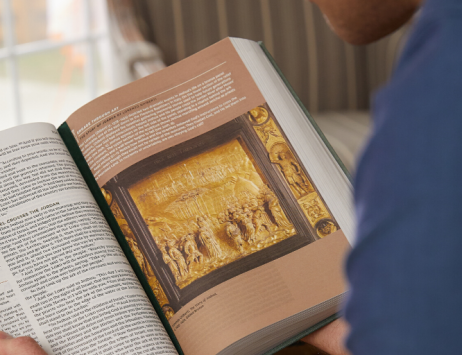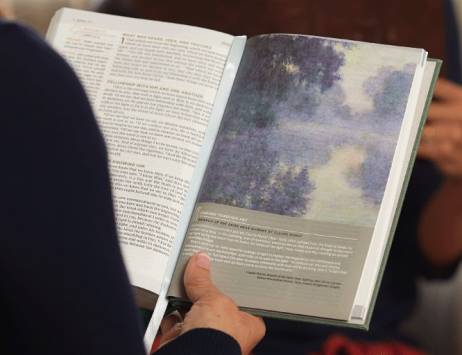Scripture engagement is the foundation of the spiritual disciplines. Other spiritual disciplines include fasting, simplicity, chastity, study, confession, solitude, silence, evangelism, celebration, submission, service, worship and others. Spiritual disciplines are tools to help us grow in our relationship with God, to become like Christ. The disciplines are never the end goal, the Christian life does not exist to perform the disciplines. Instead, the disciplines are the means to the end goal; a joyful and growing relationship with God.
Spiritual disciplines are a means of putting ourselves in a place where God can meet us. They are the means we use to prepare our hearts, bodies and minds to be in God’s presence. They create favorable conditions for meeting with God. We perform the disciplines, and when and how God chooses, He meets us there. We can’t control God, making Him conform to our desire to meet Him when and where we want. The disciplines are like our setting up the sail on a sailboat. We work at setting up our sail (the disciplines), and when God’s chooses, He fills our sail with His wind, the Holy Spirit.
The purpose for spiritual disciplines
We are what we love. We become what we love. We are to perform spiritual disciplines out of love. We want to meet and love God because He is where we experience our deepest pleasure, so we develop habits that are most likely to lead us to an experience of God. As we meet God, our lives will change and we will seek Him even more. What we do leads to who we are, which determines what we do. The habits of our lives are directed by what we love so we must be very aware of what our life habits are and what they are doing to us.
D.A. Carson wrote in his book, For the Love of God, “People do not drift toward holiness. Apart from grace-driven effort, people do not gravitate toward godliness, prayer, obedience to Scripture, faith, and delight in the Lord. We drift toward compromise and call it tolerance; we drift toward disobedience and call it freedom; we drift toward superstition and call it faith. We cherish the indiscipline of lost self-control and call it relaxation; we slouch toward prayerlessness and delude ourselves into thinking we have escaped legalism; we slide toward godlessness and convince ourselves we have been liberated.” The grace-driven effort of the spiritual disciplines is not to be taken lightly.
In other words, the disciplines, including Scripture engagement, are work; but they are the good kind of work. They aren’t the kind of work we have to do to earn God’s favor, always feeling like we haven’t done enough to please an angry demanding task-master. Instead, they are the kind of work we do to please a coach that we love and trust. One who knows us better than ourselves and believes in us, pushing us wisely, developing us into the kind of person we only hoped we could be. As we see how our discipline is changing us, we double down with anticipation and want to share what we’re doing and learning with others.
Spiritual disciplines are rooted in Scripture
Richard Peace, in his book, An Introduction to Contemplative Bible Reading, says that “The Bible stands at the center of all traditions of Christian spirituality.” N.T. Wright in his book The Last Word writes, “Reading and studying scripture has been seen as central to how we are to grow in the love of God; how we come to understand God and His truth more fully; and how we can develop the moral muscle to live in accordance with the gospel of Jesus even when everything seems to be pulling the other way.” All spiritual disciplines have their foundation in Scripture engagement because it is in Scripture that we primarily meet God.
The question is not whether one should engage the Bible, but how to engage it so that our lives are transformed. Our spiritual disciplines must be motivated by, informed by, and performed through a reflective approach to Scripture. Often the various forms of the disciplines are means to better saturate our lives in the Bible. As Eugene Peterson writes, engaging the Scriptures is our primary and normative access to God as He reveals Himself to us. Walt Russell, in Playing with Fire, puts it this way, “The main thing God uses to form us into the likeness of Jesus Christ is His Word – the Scriptures.”
###
 The Abide Bible: Engage Scripture, Engage God.
The Abide Bible: Engage Scripture, Engage God.
Do you yearn for life-giving, intimate communion with God? The Abide Bible is designed to help you experience the peace, hope, and growth that come from encountering the voice and presence of God in Scripture. Every feature in Abide is designed to teach and develop Scripture-engagement habits that help you know the power and spiritual nourishment of abiding in Christ.





